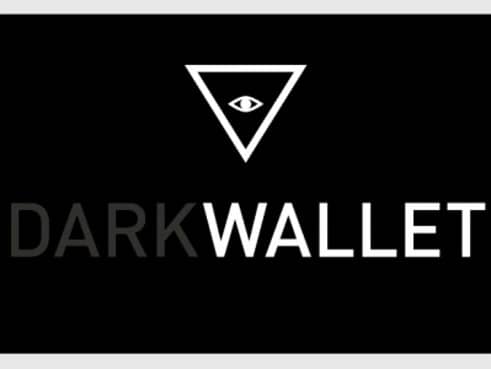위키 구독하기
Share wiki
Bookmark
Dark Wallet
0%
Dark Wallet
다크 월렛은 비트코인 거래의 익명성을 향상시키기 위해 만들어진 지갑입니다. 스텔스 주소 및 코인 믹싱과 같은 기능을 제공하여 사용자 개인 정보를 보호하도록 설계되었습니다. [3]
소개
다크 월렛은 비트코인 거래를 난독화하여 데이터 익명화를 향상시킨 디지털 지갑입니다. 다크 월렛은 DarkWallet 또는 Darkwallet이라고도 불렸습니다. 다크 월렛은 비트코인 거래의 익명성을 개선하려는 초기 시도였습니다. 코디 윌슨과 아미르 타키가 다크 월렛을 만들었습니다. 다크 월렛은 실제로 완성되지는 않았지만 이후의 많은 익명성 프로젝트에 영감을 주었습니다.[1]
다크 월렛의 첫 번째 알파 버전은 2014년 5월에 출시되었으며, 2015년 1월에 8번째 알파 버전이 나오기 전에 여러 차례 업데이트를 거쳤습니다. 더 이상의 업데이트는 없었으며 프로젝트는 더 이상 개발 중인 것 같지 않습니다. 그러나 이후 몇 년 동안 유사한 개인 정보 보호 중심 지갑과 암호화폐가 많이 등장했습니다.[4]
2020년 12월 현재 다크 월렛 사이트는 표준 검색 엔진이나 다크 웹을 통해 더 이상 접속할 수 없는 것으로 보입니다. 다크 웹은 인터넷을 사용하지만 액세스하려면 특정 소프트웨어, 구성 또는 권한이 필요한 오버레이 네트워크인 다크넷에 존재하는 월드 와이드 웹 콘텐츠입니다. 다크 웹을 통해 개인 컴퓨터 네트워크는 사용자의 위치와 같은 식별 정보를 공개하지 않고 익명으로 통신하고 비즈니스를 수행할 수 있습니다. 다크 웹은 웹 검색 엔진에 의해 인덱싱되지 않은 웹의 일부인 딥 웹의 작은 부분을 형성하지만 때로는 딥 웹이라는 용어가 다크 웹을 구체적으로 지칭하는 데 잘못 사용됩니다.[2]
사무라이 월렛과 테일즈의 일렉트럼은 다크 월렛이 약속했던 비트코인 사용자를 위한 많은 익명성 이점을 제공합니다. 그러나 다른 암호화폐는 이후 익명성 측면에서 비트코인을 능가했습니다. 모네로는 다크 월렛의 많은 기능을 암호화폐에 내장하고 있습니다. ZCash는 다른 접근 방식을 취하지만 익명성을 위한 훌륭한 선택으로 간주됩니다.[5]
다크 월렛은 Chrome 또는 Firefox 브라우저에 소프트웨어를 설치해야 하는 지하 사이트였습니다. 설치 단계가 완료되면 지갑에 액세스하는 데 필요한 비밀번호인 지갑 시드 또는 키로 새 디지털 지갑이 생성되었습니다. 지갑에는 지출, 비즈니스 및 저축의 세 가지 포켓이 장착되어 있었고 사용자 생성 포켓 수에는 제한이 없었습니다. 각 포켓에는 비트코인 거래를 할 수 있는 자체 스텔스 주소가 있었습니다.[2]
두 가지 방법의 익명성
다크 월렛은 사용자에게 스텔스 주소와 코인 믹싱의 두 가지 방법으로 익명성과 개인 정보를 제공했습니다.
스텔스 주소
다크 월렛 애플리케이션을 사용하여 거래에서 지불을 받는 사용자는 자금을 입금할 새 주소를 생성했습니다. 거래를 암호화함으로써 지불인조차도 수취인의 주소를 불러오거나 추적할 수 없었습니다. 가장 중요한 것은 지불이 양 당사자의 거래 내역을 조사하려는 원치 않는 당사자로부터 숨겨졌다는 것입니다.[2][5]
코인 믹싱
이 기능은 사용자의 거래를 동시에 거래를 하는 임의의 사용자의 거래와 혼합하거나 결합하여 추적 가능성을 줄였습니다. 코인이 시스템의 충분한 비트코인 사용자와 결합되면 원장에서 거래를 추적하는 것이 어려울 것입니다. 동시에 이루어진 다음 거래를 고려하십시오. 'A'는 'B'로부터 품목을 구매하고, 'C'는 'D'로부터 품목을 구매하고, 'E'는 'F'로부터 품목을 구매합니다. 일반적인 블록체인 원장은 모든 투명성으로 각 주소에 대해 세 건의 거래를 기록합니다. 그러나 다크 월렛은 이를 함께 결합하여 단일 거래만 기록했습니다. 원장은 비트코인이 'A', 'C' 및 'E'의 주소에서 'B', 'D' 및 'F'의 주소로 지불되었음을 보여줍니다. 모든 당사자가 체결한 거래를 마스킹함으로써 추적기는 누가 누구에게 비트코인을 보냈는지 확실하게 결정할 수 없습니다. 코인 믹싱은 사용자가 자신의 포켓 중 하나에서 다른 포켓으로 코인을 전송할 때도 수행됩니다.[2][6]
코인 믹싱의 확장은 암호화폐 거래에서 익명성을 높이는 가장 명확한 경로 중 하나로 간주되었습니다. 모네로는 궁극적으로 이 전략을 추구했습니다.
코인 믹싱과 스텔스 주소가 익명성을 높이지만 완벽한 개인 정보를 제공하지는 않습니다. 충분한 자원을 가진 결연한 적은 종종 거래를 추적할 수 있습니다.
다크 월렛에 대한 우려
비평가들은 다크 월렛이 테러 자금 조달, 돈세탁, 마약 밀매 및 아동 포르노를 포함한 많은 불법 활동의 문을 열 것이라고 우려했습니다. 그러나 감시와 데이터 해킹을 경계하는 합법적인 기업은 데이터 개인 정보 보호 및 익명성을 둘러싼 증가하는 문제를 처리하기 위한 도구로 다크 월렛을 환영했습니다.[7]
잘못된 내용이 있나요?
